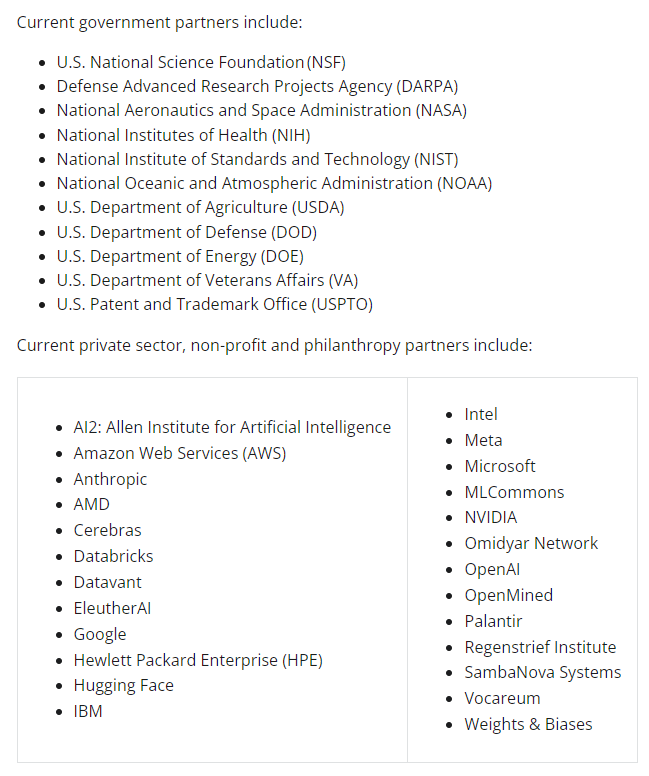US Government and AI Industry Collaborate on National AI Research Resource Pilot

The National Science Foundation (NSF) has launched the National Artificial Intelligence Research Resource (NAIRR) pilot project. The goal is to democratize access to AI resources and promote responsible AI innovation.
The two-year program aims to create a shared national infrastructure that will provide researchers and educators with access to advanced AI technologies to keep the U.S. at the forefront of AI research and innovation in the AI race.
The pilot brings together ten federal agencies, including DARPA, NASA, and the Department of Energy, and 25 private, nonprofit, and philanthropic organizations to provide advanced computing, data sets, models, software, training, and user support to U.S. researchers and educators.
The NAIRR pilot is divided into four focus areas:
- NAIRR Open, which enables open AI research;
- NAIRR Secure, which enables AI research that requires privacy and security resources;
- NAIRR Software, which enables and explores the interoperable use of AI software, platforms, tools, and services;
- and NAIRR Classroom, which will reach new communities through education, training, user support, and outreach.
The goal of the pilot is to foster cross-industry partnerships and work with the industry to deliver commercially viable AI applications and solutions. Partners include Amazon Web Services, OpenAI, Google, IBM, Intel, Microsoft, NVIDIA, and Palantir.

Potential use cases include AI researchers performing extensive model validation and verification, or community college instructors giving their students access to AI systems.
Researchers can apply for initial access to NAIRR pilot resources through the NAIRR pilot portal at nairrpilot.org; a broader call for proposals is expected in spring 2024.
AI News Without the Hype – Curated by Humans
As a THE DECODER subscriber, you get ad-free reading, our weekly AI newsletter, the exclusive "AI Radar" Frontier Report 6× per year, access to comments, and our complete archive.
Subscribe nowAI news without the hype
Curated by humans.
- Over 20 percent launch discount.
- Read without distractions – no Google ads.
- Access to comments and community discussions.
- Weekly AI newsletter.
- 6 times a year: “AI Radar” – deep dives on key AI topics.
- Up to 25 % off on KI Pro online events.
- Access to our full ten-year archive.
- Get the latest AI news from The Decoder.